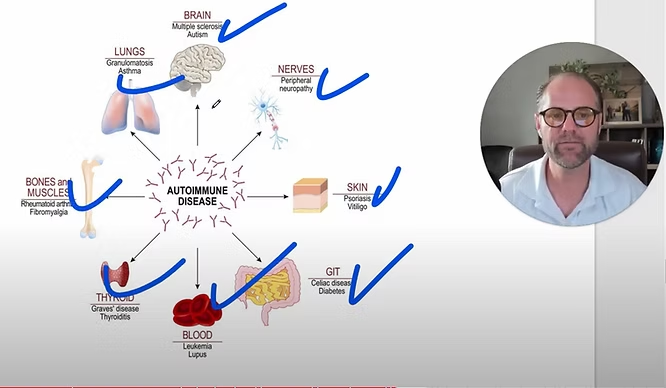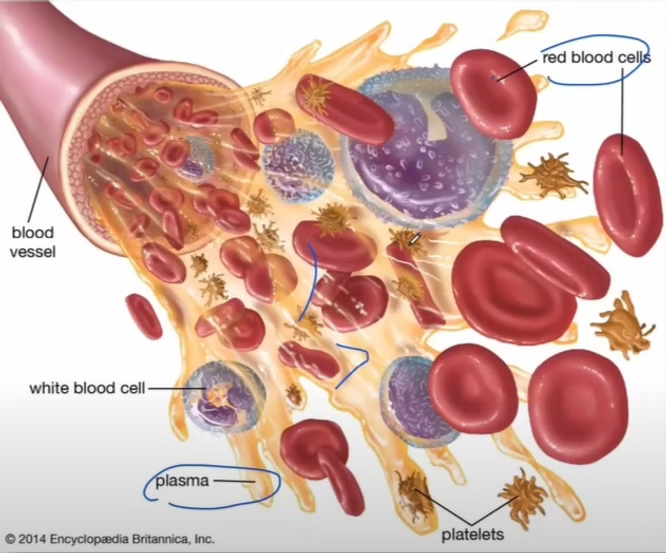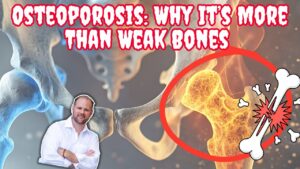Do You Have an Undiagnosed Autoimmune Disease? It May be Caused by Antibiotics.
Do you have recurring, unexplained symptoms that resemble an autoimmune disease? This is more common than you think. Undiagnosed autoimmune disorders can cause chronic pain, fatigue, and an overall lower quality of life, so read on if you believe you might be affected.
Research shows that it’s possible for antibiotics and fluoroquinolones – Cipro, Levaquin, Flagyl, Bactrim, and others – to cause this autoimmunity. In this blog post, I’ll go over why this is occurring using the latest medical research alongside my personal clinical experience helping thousands of people who have been damaged by antibiotics.
Autoimmune disease is when your body sees tissue – your thyroid, for example – and instead of seeing a normal amount of this tissue, it thinks it sees an excess. Then, your immune system says, “Whoa, that’s got to be foreign. Is it friend or foe?” In most cases, any perceived excess of tissue is going to be seen as “foe” and the immune system will start to attack it. This is what causes autoimmune symptoms. The building up of related symptoms over time due to a systemic cause is “disease.”
The way I see it is when you have autoimmune disease, it’s like your immune system is a little drunk. It’s as though you’re driving and you’ve had too much to drink; instead of one car, you see two cars, or four cars, or eight cars. The same thing happens with your immune system. It’s taking all these different pictures of what’s going on in your body, flagging them as “friend” or “foe.” But if it can’t differentiate them, it will always lean more aggressive and assume it’s a foe, attacking tissues that might have been friendly simply because it’s seeing double.
When you take antibiotics, what happens in your blood?
You’ve probably heard of plasma, which makes up about 55% of your blood. About one percent of your blood is white blood cells, and the rest is red blood cells. You can donate plasma at clinics all over the country in exchange for payment – you might have even seen ads for this service. When you donate plasma, which you can do twice per week, you’re also giving your body’s nutrients. That’s because a large portion of the nutrients that your body needs is held in your plasma in the form of particular proteins.
When you ingest antibiotics, especially fluoroquinolone medications, these drugs attach to the proteins in your plasma – the globulin in your bloodstream. They can cause severe autoimmune reactions or even a mild, low-grade autoimmune disease. In someone who suffers from tendon, nerve, or stomach problems and has taken these drugs, there’s a high probability that your immune system recognizes the tissues in your body as foreign, and is actively seeking out and attacking them. That’s the definition of autoimmune disease we covered earlier.
But What Is Plasma? Let's Go Deeper.
We know the plasma in your blood makes up 55% of the total, but what makes up the plasma? The proteins albumin, globulin, and fibrinogen make up the plasma, with different percentages of each (plus water) going toward the total 55% of whole blood. Albumin is the most abundant protein, but the most abundant material in plasma is actually water, making up 90% of the plasma. Think of the proteins like cargo ships in the sea of plasma, transporting important materials around the body.
Plasma surrounds the blood cells, and the proteins float in it. When a drug enters the system, the drug attaches to the albumin in a process called haptenation. But it shouldn’t be there according to your body’s immune system. Thus, the immune system attacks it, destroying important proteins and their functions.
What does the research say?
You may know someone who is on these medications and had has no major health concerns as a result. They are in the minority. According to the research, allergy towards a wide spectrum of antibiotics such as amoxicillin is a major health concern. Albumin, the essential protein in plasma, is considered by science to be a major target for haptenation by antibiotics. This means the drug is likely to attach to the albumin, causing the autoimmune response we touched on earlier. It’s important to emphasize that the drug by itself does not cause the autoimmune response, but the drug attached to the protein (haptenation) that is the culprit.
More importantly, the albumin with haptenation can look like other tissues in the body. So, when your immune system recognizes the albumin with the drug attached to it as foreign, it “takes a picture” of this as something that must be attacked. But because the affected albumin can look like other tissues – your heart, tendons, nervous system, brain, adrenal glands, gut protein, and more – your immune system may also begin to attack these vital tissues as well. This is where the autoimmune disease begins.
First, you and your doctor must take the approach that you have an autoimmune disease. This changes the overall treatment protocol. Although you may have bounced from doctor to doctor in the past, none of them diagnosing you with an autoimmune condition, just know that it is common and entirely possible for you to be suffering with autoimmunity.
Clinical trials are improving our understanding of autoimmunity. A new method of lab testing has made it possible to determine whether there is an autoimmune disease present in your body, but it’s not available conventionally yet. In the United States, twice as much money is spent on autoimmune diseases as is spent on cancer, and the clinical research shows drugs induce autoimmune disease.
What other things increase autoimmune disease? Low blood pressure, high blood pressure, food sensitivities to dairy, gluten, soy, nightshades, and eggs all play a part. Leaky gut, overactivity of certain parts of your immune system, high homocysteine, CRP insulin, not enough sleep, parasites, and more are also culprits. That means a lot of things can be contributing to your autoimmune disease, and a first step can be figuring that out with your doctor.
Just know that there’s help. If you need more information, please reach out to me.
Frequently Asked Questions (FAQ)
Yes, according to the blog post and cited research. Antibiotics, especially fluoroquinolones (like Cipro and Levaquin), can attach to proteins in your blood plasma in a process called haptenation. This can cause your immune system to mistakenly attack your own tissues, leading to an autoimmune disease.
The process is called haptenation. When you take antibiotics, the drug can attach to essential proteins in your blood plasma, like albumin. Your immune system then sees this drug-protein combination as foreign ("a foe") and attacks it. The problem is that the affected protein can resemble other tissues in your body (like tendons, nerves, or the gut), causing the immune system to attack those healthy tissues as well.
The blog mentions recurring, unexplained symptoms such as chronic pain, fatigue, and tendon, nerve, or stomach problems. These can significantly lower your quality of life and may indicate your immune system is attacking your body's tissues.
The first step, as suggested in the blog, is to discuss the possibility of an autoimmune disease with your doctor. This changes the treatment approach. It's also important to investigate other potential contributors like food sensitivities (e.g., dairy, gluten), leaky gut, sleep issues, and other underlying health factors.
Haptenation is the key mechanism explained in the blog. It is the process where a small molecule (like an antibiotic drug) attaches to a larger protein in your body (like albumin in your blood). This combination creates a new complex that your immune system does not recognize, triggering an immune attack that can lead to autoimmunity.









